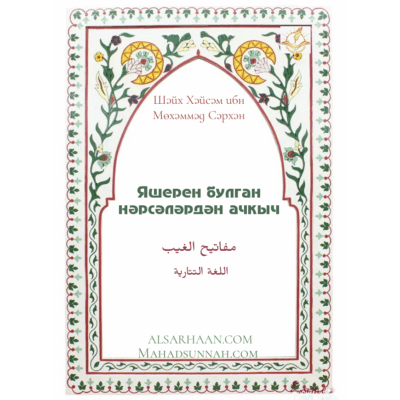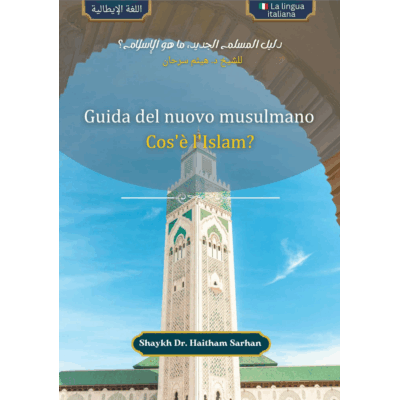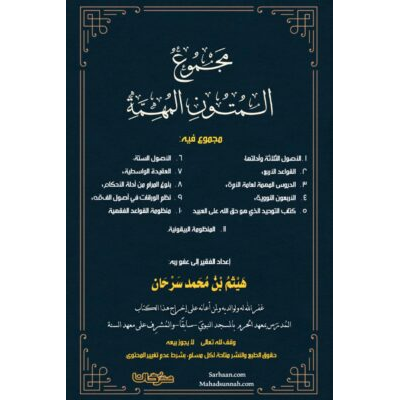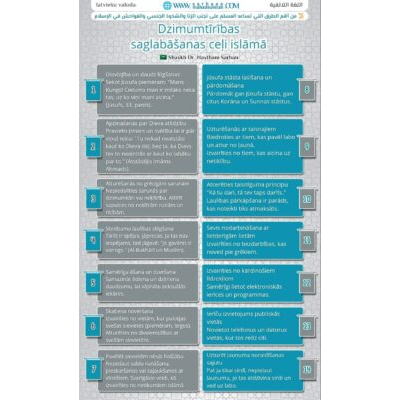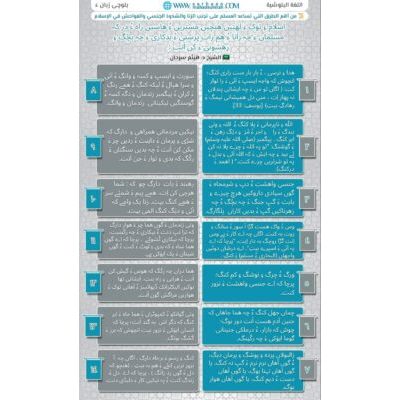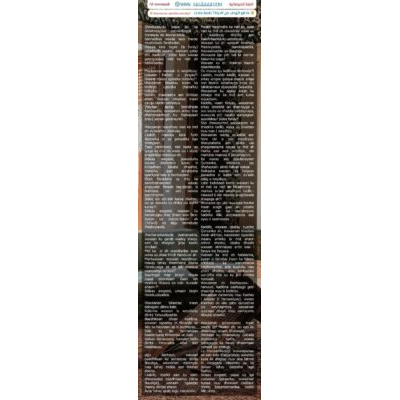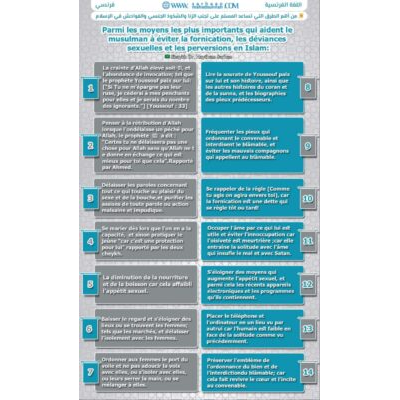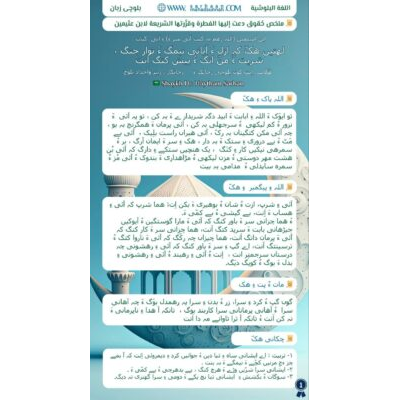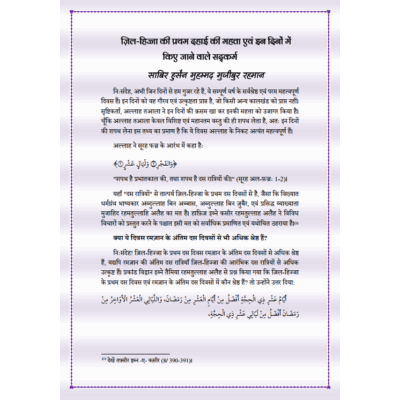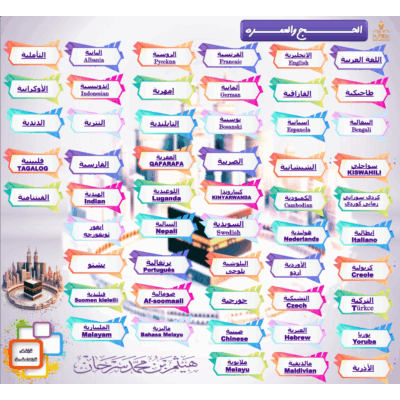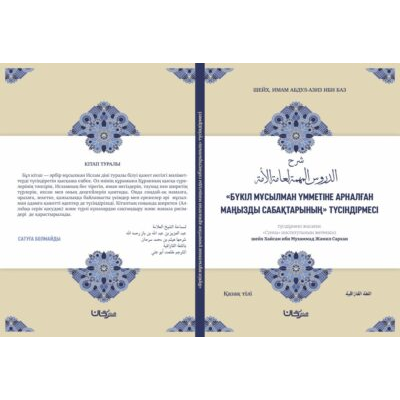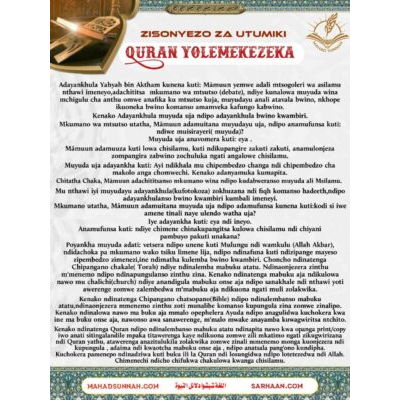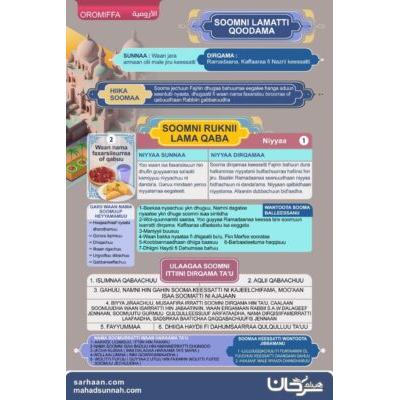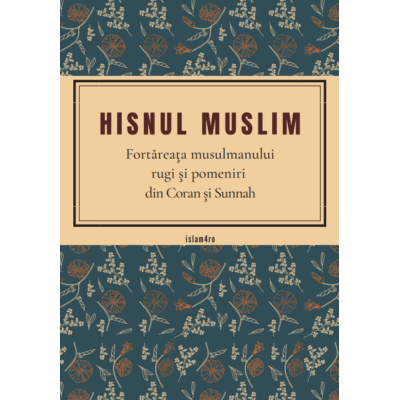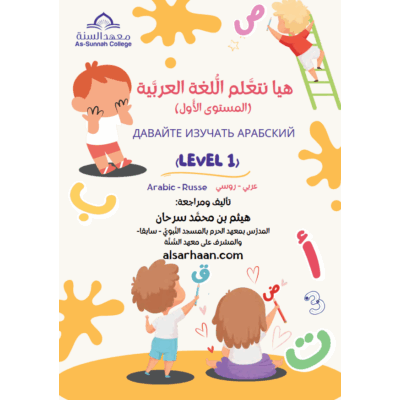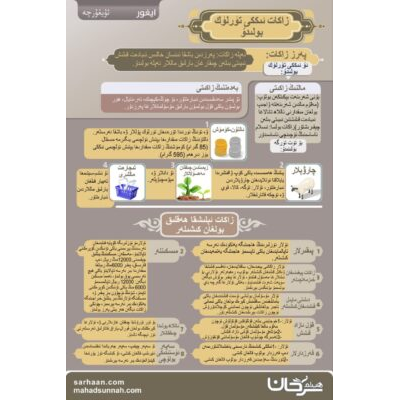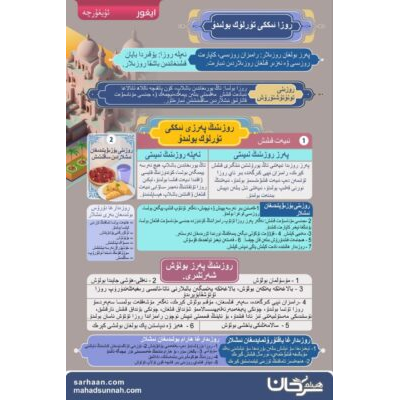
English Fasting Booklet
In the name of Allaah, the Most Merciful, the Bestower of mercy DEFINITION OF FASTING (SIYAAM) Linguistic definition: To abstain from something. Islamic definition: Worshipping Allaah by abstaining from food, drink and other actions which invalidate a person’s fast, from true dawn to sunset. THE PILLARS OF FASTING A sincere intention (Niyyah). Abstaining from anything that invalidates the fast. TYPES OF FASTS AND THEIR NIYYAH (INTENTION) Obligatory fast: This includes the month of Ramadhan,...
English Fasting Booklet
In the name of Allaah,
the Most Merciful, the Bestower of mercy
DEFINITION OF FASTING (SIYAAM) Linguistic definition: To abstain from something.
Islamic definition: Worshipping Allaah by abstaining from food, drink and other actions which invalidate a person’s fast, from true dawn to sunset.
THE PILLARS OF FASTING
- A sincere intention (Niyyah).
- Abstaining from anything that invalidates the fast.
TYPES OF FASTS AND THEIR NIYYAH (INTENTION)
- Obligatory fast: This includes the month of Ramadhan, expiations and vows. A person must make an intention the night before he fasts i.e. before the Fajr prayer. It is sufficient for a person to make a single intention for the whole month at the beginning of Ramadhan. The intention is in the heart, and pronouncing it verbally is a Bid’ah (innovation).
- Voluntary fast: The intention is made at any time of the day, as long as a person has not eaten or done something which would invalidate the fast. The reward for a voluntary fast is according to how early a person intends and begins his fast.
CONDITIONS FOR THE OBLIGATION OF A FAST
- Islaam: Fasting is only accepted from Muslims.
- Intellect: A person who is mentally disabled does not fast.
- Puberty: After the age of puberty, fasting is an obligation. However when a young child reaches the age of distinction (Tamyeez) then he is encouraged and trained to fast by the guardian.
- Residence: Fasting is not obligated upon a traveling person, although it is better to fast as long as there is no difficulty upon him. Why?
- The Prophet often fasted whilst on a journey.
- The fast need not be made up at a later date.
- It is easier to fast during Ramadhan.
- A person gains the virtue of the month of Ramadhan.
- Health: An ill or weak person does not need to fast.
- Purity: From menstruation and post-natal bleeding. Wudhu is not a condition for Fasting.
FASTING FOR THE ILL
- Chronic illness: A weak or old person also falls under this category. There is no obligation to fast in this state. However, a poor person must be fed for each day missed. Each poor person must be given staple food of the locality such as wheat or rice to the measure a half a Saa’ (approx. 1.5kg). It is also encouraged to give a condiment of meat and sauce. If this cannot be afforded, nothing is obligated.
- Temporary illness: A menstruating woman, a woman suffering from post-natal bleeding, a breastfeeding woman all fall under this category. They must make up the missed fasts at a later date according to the number of days missed.
THE BEGINNING OF RAMADHAN
It can be known by one of two ways:
- Sighting the new moon.
- Completion of thirty days of the month of Sha’baan.
RECOMMENDED ACTS DURING THE FAST
- Delaying the Suhoor (pre-dawn meal) until its latest time.
- Iftaar (breaking the fast) at the earliest time.
- Breaking the fast with fresh dates and water; if they are not found, then dry dates. If there is no food or drink then the intention of Iftaar is done in the heart.
- Du’aa during the day especially before Iftaar, reciting Qur’an, charity, Taraaweeh and Dhikr.
- Performing Umrah.
- Saying ‘I am fasting’ to the one who insults.
- Seeking the Night of Al-Qadr (by increasing in good deeds in the last ten nights).
- I’tikaaf in the last ten days.
PERMITTED ACTS DURING THE FAST
It is permitted for a fasting person to swallow saliva, taste a minute amount of food due to a necessity, take a shower, use the Miswaak, brush the teeth with toothpaste, use perfume and any other action which is not an invalidator. A person can rinse the mouth with water but this should not be done excessively.
ACTS WHICH INVALIDATE THE FAST
- Eating and drinking intentionally: If a person eats or drinks forgetfully, he should continue fasting.
- Sexual intercourse: If a person has intercourse during his fast in a day of Ramadhan, then upon him is the major expiation:
- Freeing a slave.
- If unable to do so, then fasting two months consecutively.
- If unable to do so, then feeding sixty poor people.
- Discharge of semen: Due to touching, kissing, hugging or any other action out of desire.
- Anything similar to eating or drinking: Such as taking a nutritional injection. As for injections that have no nutritional value, they do not invalidate one’s fast.
- Bleeding due to Cupping: A small amount of bleeding due to blood-analysis or the like, does not invalidate a person’s fast.
- Vomiting intentionally.
- Menstruation and post-natal bleeding.
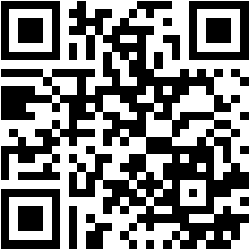
English Fasting Booklet
Scan QR Code | Use a QR Code Scanner to fast download directly to your mobile device
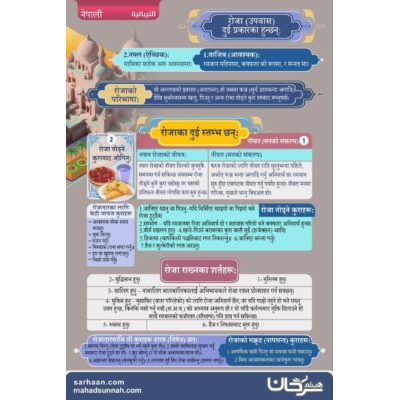
रोजाको चार्ट: यो डा. हैथम सरहानको रचना हो, जसमा उनले रोजासम्बन्धी महत्वपूर्ण विषयहरूलाई स्पष्ट रूपमा प्रस्तुत गरेका छन्। यसमा फर्ज (अनिवार्य) र मुस्तहब रोजाको उल्लेख गरिएको छ, रोजाको परिभाषा दिइएको छ, ती अवस्थाहरू उल्लेख गरिएको छ जब रोजा गर्नु मक्रूह वा हराम हुन्छ, र रोजासम्बन्धी महत्वपूर्ण फिकही (धार्मिक कानुनी) नियमहरूलाई एउटै तालिकामा समेटिएको छ।
July 6, 2025
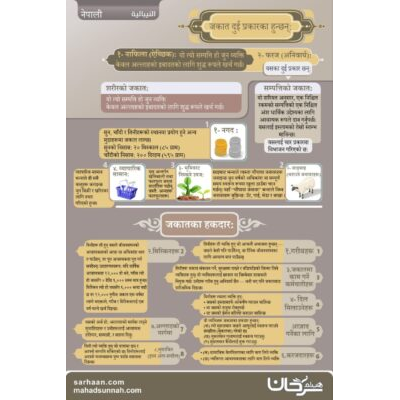
ज़कातको चार्ट: यो डा. हैथम सरहानको रचना हो, जसमा उनले ज़कातका फर्ज र मुस्तहब पक्षहरू सम्बन्धी महत्वपूर्ण विषयहरूलाई स्पष्ट पारेका छन्। यसमा ज़कातको परिभाषा, ती सम्पत्तिहरू जुनमाथि ज़कात अनिवार्य हुन्छ, र ती व्यक्तिहरू जसलाई ज़कात दिन सकिन्छ, साथै ज़कातसँग सम्बन्धित महत्वपूर्ण फिकही (धार्मिक कानुनी) नियमहरूलाई एउटै समग्र तालिकामा प्रस्तुत गरिएको छ।
July 6, 2025
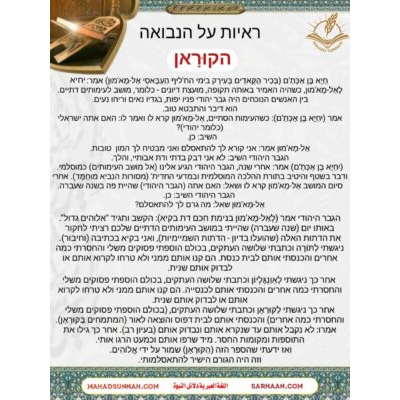
ראיות על הנבואה הקוּרָאן יִחְיָא בֶּן אַכְּתַ'ם (בְּכִיר הַקָּאדִים בְּעִירָק בימי הח'ליף הַעַבָּאסִי אַל-מָא'מוּן) אמר: היה לְאַל-מָא'מוּן, כשהיה האמיר באותה תקופה, מועצת דיונים - כלומר, מושב לעימותים דתיים. בין האנשים הנוכחים היה גבר יהודי פניו יפות, בגדיו נאים וריחו נעים.
July 6, 2025

रोजाको चार्ट: यो डा. हैथम सरहानको रचना हो, जसमा उनले रोजासम्बन्धी महत्वपूर्ण विषयहरूलाई स्पष्ट रूपमा प्रस्तुत गरेका छन्। यसमा फर्ज (अनिवार्य) र मुस्तहब रोजाको उल्लेख गरिएको छ, रोजाको परिभाषा दिइएको छ, ती अवस्थाहरू उल्लेख गरिएको छ जब रोजा गर्नु मक्रूह वा हराम हुन्छ, र रोजासम्बन्धी महत्वपूर्ण फिकही (धार्मिक कानुनी) नियमहरूलाई एउटै तालिकामा समेटिएको छ।
July 6, 2025

ज़कातको चार्ट: यो डा. हैथम सरहानको रचना हो, जसमा उनले ज़कातका फर्ज र मुस्तहब पक्षहरू सम्बन्धी महत्वपूर्ण विषयहरूलाई स्पष्ट पारेका छन्। यसमा ज़कातको परिभाषा, ती सम्पत्तिहरू जुनमाथि ज़कात अनिवार्य हुन्छ, र ती व्यक्तिहरू जसलाई ज़कात दिन सकिन्छ, साथै ज़कातसँग सम्बन्धित महत्वपूर्ण फिकही (धार्मिक कानुनी) नियमहरूलाई एउटै समग्र तालिकामा प्रस्तुत गरिएको छ।
July 6, 2025

ראיות על הנבואה הקוּרָאן יִחְיָא בֶּן אַכְּתַ'ם (בְּכִיר הַקָּאדִים בְּעִירָק בימי הח'ליף הַעַבָּאסִי אַל-מָא'מוּן) אמר: היה לְאַל-מָא'מוּן, כשהיה האמיר באותה תקופה, מועצת דיונים - כלומר, מושב לעימותים דתיים. בין האנשים הנוכחים היה גבר יהודי פניו יפות, בגדיו נאים וריחו נעים.
July 6, 2025
